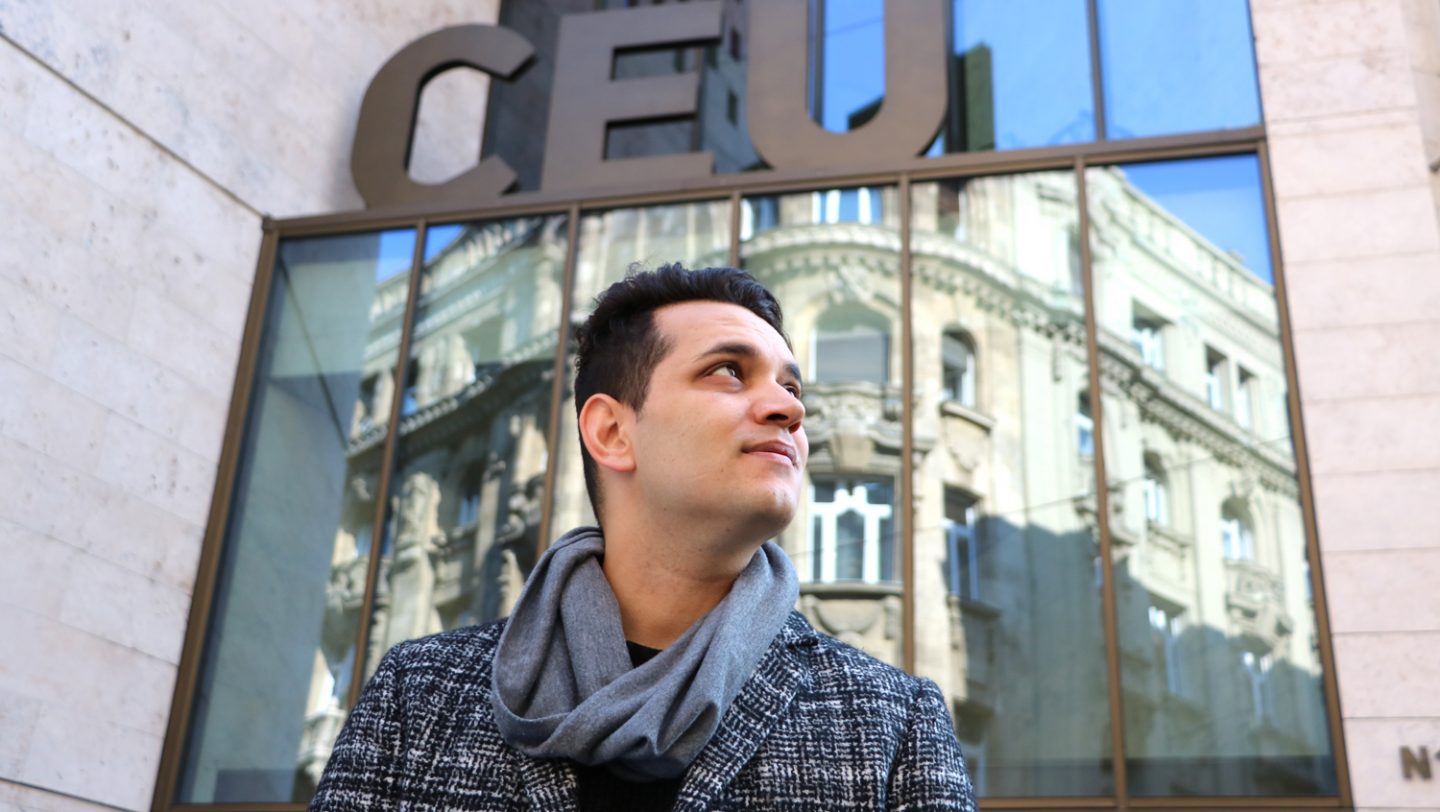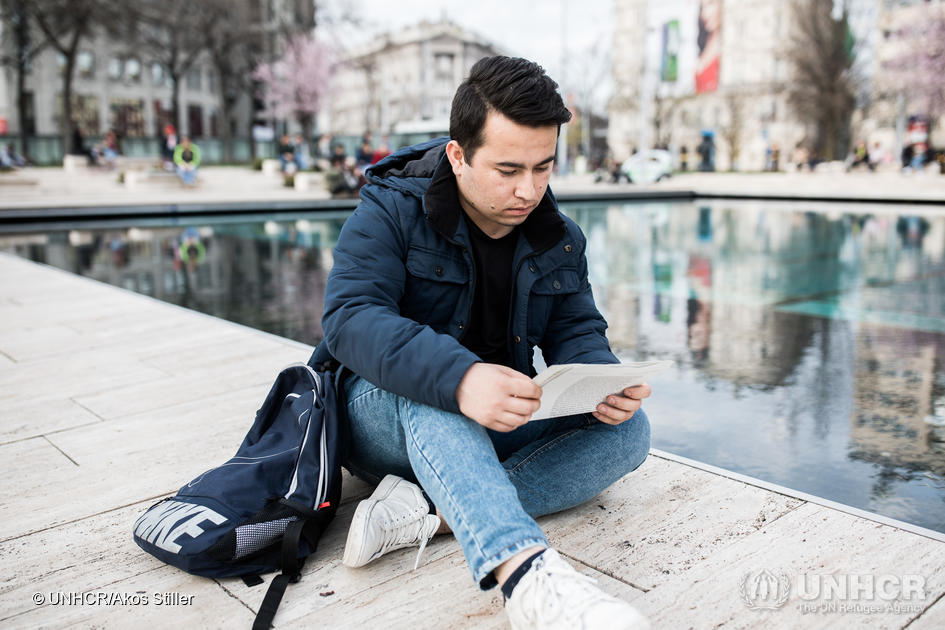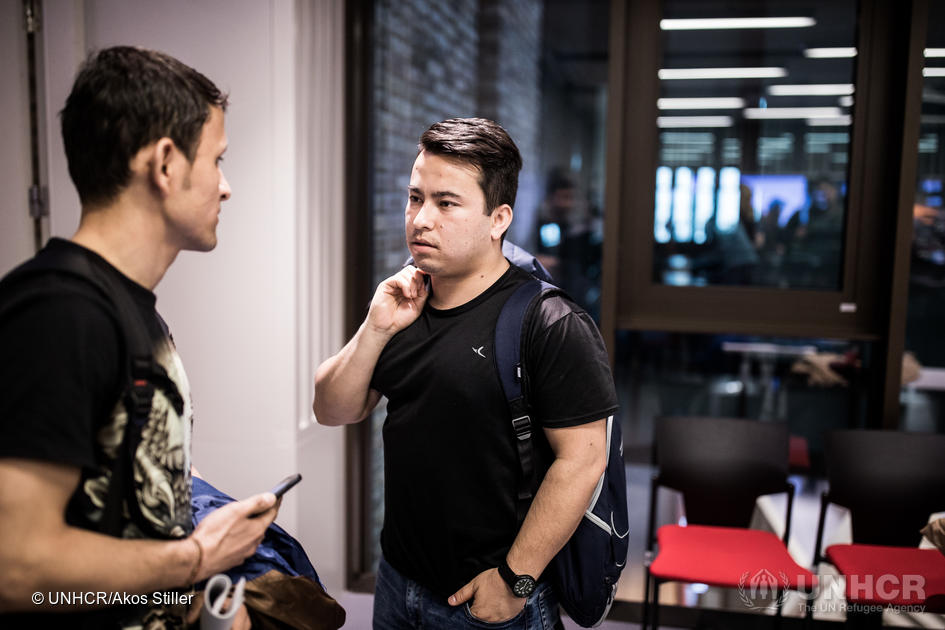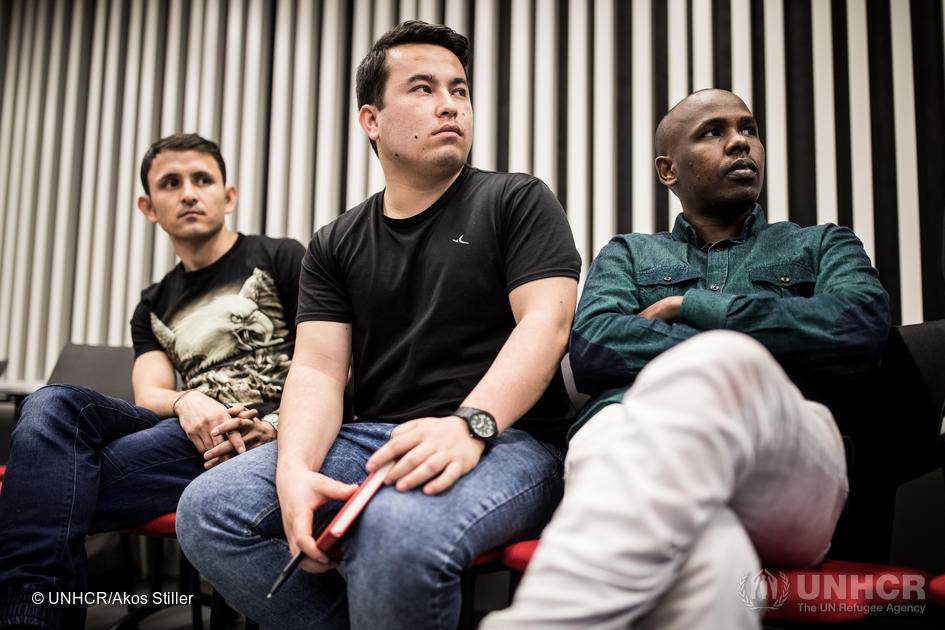Under pressure, university closes its doors to refugee students
With the suspension of the Central European University’s Open Learning Initiative, refugees have lost a unique opportunity to continue their studies and contribute to the region.
Iranian refugee and alumni of CEU's OLIve program, John Chitgaran at the University's library. ©UNHCR/Zsolt Balla
International Relations, Political Science, Public Policy, Business Studies – these were just some of the subjects offered by the Open Learning Initiative (OLIve program) at the Central European University (CEU) in Budapest.
But just before the start of the autumn semester, the university suspended the program, designed to give refugees and asylum-seekers in Europe access to higher education. The closure was a direct result of new Hungarian laws imposing extra taxes on organizations that help refugees and migrants.
“It was very intensive, and amazing at the same time. The program was not just a school.”
“This program helped us a lot. It was tailored to each student individually, according to their needs and level of education,” says Kutaiba Al Hussein, 35, a former OLIve student from Syria.
Kutaiba got a first qualification in law in his homeland. At the CEU, he achieved an MA in business law. A refugee from the badly destroyed city of Aleppo, he was enrolled in the OLIve program from its inception in 2015 and saw it as a chance to find his way in Hungarian society.
“It was very intensive, and amazing at the same time. The program was not just a school. It helped me understand the Hungarian legal system, and many other things I needed to know to operate successfully in my new country,” he says.
Education plays a key role in integration for refugees. This was the thinking of OLIve founder and director Prem Kumar Rajaram, who set up the programme at the height of the refugee crisis, when hundreds of thousands crossed into Hungary on their way to Western Europe.
A few stayed in Hungary and found hope at the university. Many of the lecturers taught on a voluntary basis.
“It was also about the people you met there”
The Government of Hungary adopted a package of laws imposing a special 25 % tax on funds for “supporters of immigration” significantly restricting the ability of NGOs and individuals to support asylum-seekers. The extra taxes made it impossible for the programme to continue. Thus, after only three years and with some 50 graduated students, the OLIve initiative has come to a screeching halt.
Afghan refugee Ibrar Hussain Mirzai, 18, who attended OLIve’s weekend classes to prepare refugee students for degree courses, speaks with regret about the loss of the programme.
“It was not only a unique opportunity to study and practice English. It was also about the people you met there,” he says.
Ibrar left Pakistan after finishing high school in 2015. His family belongs to the Hazara minority and fear of persecution was why they did not want him to attend a local university. He travelled for two years before reaching safety in Hungary. The perilous journey took its psychological toll but the CEU helped him to recover.
“I was looking for any opportunity to start my studies again. I was lost, with nowhere to turn. Being a part of the OLIve programme, I felt a part of society as well,” he says.
“I clearly remember a class discussion on the relationship between human rights and humanity.”
Another OLIve graduate, John Chitgaran, 35, from Iran, speaks of how he was empowered by the programme.
“It was amazing to see how everybody had something to add to the conversation,” he says. “I clearly remember a class discussion on the relationship between human rights and humanity.”
Thanks to his studies, John holds a certificate in human rights. He has self-published a first novel, “Escape from Paradise”, and he is writing a second book.
Mixing reality with fiction, his books draw on his experiences as a refugee. “My wish is to become a writer. I want to write to help other refugees, to tell their stories, to tell the world how hard it is to be a refugee,” he says.
As for Kutaiba, he has taken a more practical path and is working in an attorney’s office, mostly dealing with telecommunications and technology-related cases. “Not exactly what I dreamed of as a child,” he says, “but technology law is very important and will clearly be in demand for years to come.”






